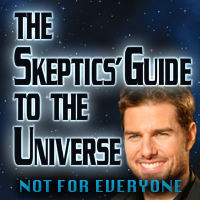There have been quite a few things to interest me lately that I should have written about. I'll lead off with look at incorporating critical thinking skills into a secondary curriculum. I was speaking with a close friend (who happens to be a high-school teacher) a while back, and the topic of her students' progress on the "thinking skills" requirement came up. She's currently teaching seniors, and for the first assignment along those lines, she gave them a list (the Ten Commandments, though I don't know which set), and asked them to organize it into different categories, defend why some items were placed together and others not, etc. That's a very basic assignment, particularly for the grade level. Other teachers were apparently appalled, though, because she didn't lead them by the hand, reviewing the basic steps in the process of organizing information. These kids are seniors. If they don't know the basics by now, there's no point in reviewing. An educator at a higher level has to have a reasonable expectation that those at lower levels have successfully imparted information.
Now, while the organization of thought is a basic need in an English course where writing is a requirement, critical thought may not be. However, to reasonably defend thought, critical thinking is an absolute necessity. Skeptical thinking is most often placed squarely in the realm of science, but the realm of literature is, in my opinion, a very fertile training ground. Combining the skills needed to examine a work, evaluate it, and defend the evaluation is the basis of a literature and composition course; not coincidentally, these are the same skills needed to determine the strength of any argument, be it scientific, philosophical, or historical. Composition, whether on paper or orally, is how we develop the skills to argue a point. To argue a point well, you must have evidence; the means to find and determine the accuracy of that evidence, critical thinking skills must be developed concurrently. There are several ways that this can be done.
First, a good examination of literature demands several things. Not only must you look at the work itself, but you must also examine the context in which it was created. Even the works most open to varying interpretation can surrender some mystery to hard fact. As an example, one of my college acquaintances related a story of his father's experience in a poetry course. The class was examining a work by Robert Frost, and the professor spent quite a bit of time discussing the metaphorical structure, the author's motivation for creating the work, and so on; all the standard poetry ideas. When he turned it over to the class with the question, "Where else do you think Frost's motivation might have come from?"
My friend's father raised his hand and responded, "Maybe he just looked out his window one day, thought it was pretty, and decided to write a poem about it."
After spending a bit of time essentially ridiculing such a mundane idea about a great poet, the professor finally asked, "What would make you think such a thing?"
"Well, when they asked him about this poem on TV last night, that's what he said."
I realize that such a third-hand anecdote hardly qualifies as evidence that such a conversation took place; however, even if the veracity is in doubt, such a tale serves an allegorical purpose. Among the lessons of the story is that, even if an argument is well-structured, logical, and likely, it may fail to agree with the facts. And, because of that, the argument is invalid. The instructor's interpretation was based on assumptions about how poetry works, about the author, about the subject, about any number of the aspects that are constantly argued about in literature, and even about the knowledge held by his students. Assumptions are the little devils of organized thought. We always have them, and we constantly make them; however, they are also most often where we go wrong. That's why Occam's Razor is such a universally useful tool.
The Razor is often misidentified with the the phrase, "The simplest explanation is the best." That is a patently false and easily manipulated idea. Many utterly stupid ideas are very simple, and very wrong. The proper statement is, "An explanation of any phenomenon should make as few assumptions as possible, eliminating those that make no difference in the observable predictions of the explanatory hypothesis or theory." (definition parsed from Wikipedia). That's a bit wordy, so the first half, "An explanation of any phenomenon should make as few assumptions as possible" is close enough for our purposes. Again, while we often see this applied to science and pseudoscience, it's applicability in the humanities is quite clear. Occam's Razor is a means to determine context by examining what is known versus what must be assumed. Now, first, we need to define what an "assumption" is. Something backed by overwhelming evidence that has faced repeated scrutiny should not be considered an assumption ("The sun will rise tomorrow," "When I step off the curb, I will not phase through the street," etc.). They may be simplifications, but not assumptions. Something that doesn't pass a reasonable evidentiary test may be considered an "assumption" ("Aliens stole Bob's cow," "Napoleon Bonaparte developed the first machine gun," "Jim went to Vegas Tuesday instead of to work."). Some of the greatest debates in literature are based on the fact that we don't have hard evidence concerning older works. For example, the manuscript we commonly know as "Beowulf" is assumed to have been altered by early Christian scribes to minimize Norse pagan imagery and add Christian themes. There is circumstantial evidence for this, but, lacking an older copy of what were primarily oral traditions to begin with, it remains an assumption. The arguments surrounding the authorship of Shakespeare's works contain a great deal of evidence and speculation. The rub comes when two sides can't agree which is which.
That brings up another major issue of critical thinking. When looking at arguments from various perspectives, the difference between evidence and assumption varies wildly, as everyone has different thresholds for what they find reasonable and convincing. I think this is the spot where hard science has the greatest advantage over critical thinking in the humanities. You can replay the experiment in science; replication and verification are the heart of the scientific method. Evidence is weighted based on what biases or errors might have confounded the process ( the Science-Based Medicine blog has a great article on ranking the usefulness of the much maligned anecdote). It's much harder to do that with literature or philosophy, and when you factor in schools of thought like postmodernism, it buggers up pretty much everything. I think, then, that for a discussion of "soft" subjects, all sides need to agree on ground rules and definitions at the front. This is especially important in an educational context; one must define what controversial (and possibly even basic) terms will mean before discussion begins, what standards must be met for evidence to be considered valid, and other variables. This is something easily within the control of a teacher in the context of a classroom discussion, and it should prevent more heated exchanges is desired. It can also be used to demonstrate the power of assumptions, as mentioned above. If you change a definition, or raise the bar on one type of evidence, how does that alter the discussion? Does it make one position weaker, or stronger?
All in all, I think that students are not introduced to critical thought early enough. Given modern educational "standards" geared toward rote learning and regurgitation, little time is devoted to developing methods of thought, and those must be developed early to foster a healthy, lifelong skepticism toward the world. Composition and literature are ideal places for this, I think, due both to the wide range of material and to the level of control that can be exerted over guidelines. Perhaps some of the major skeptical outreach organizations might consider this approach. Not all ideas are presented in terms of science, after all.
Subscribe to:
Post Comments (Atom)






No comments:
Post a Comment